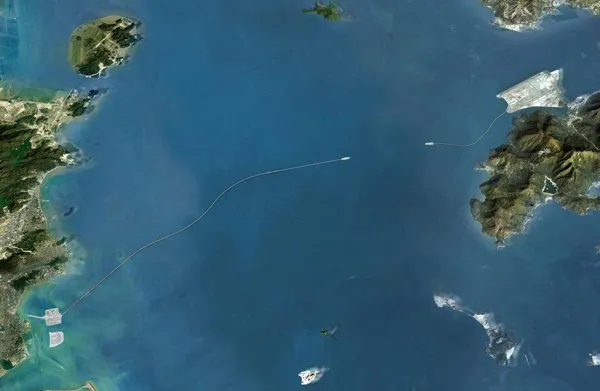National Bank Financial and Axium Infrastructure have refinanced the Sea-to-Sky Highway Improvement Project in the Canadian province of British Columbia.
A statement from Axium said that the US$427 million 25-year public-private-partnership had “strong investor support and an A2 rating from Moody’s”.
The Sea-to-Sky Highway Investment Limited Partnership - Axium Infrastructure, Régime de Rentes du Mouvement Desjardins and Nova Scotia Pension Agency - is the consortium in charge of the concession.
In
July 19, 2016
Read time: 2 mins
National Bank Financial and Axium Infrastructure have refinanced the Sea-to-Sky Highway Improvement Project in the Canadian province of British Columbia.
A statement from Axium said that the US$427 million 25-year public-private-partnership had “strong investor support and an A2 rating from Moody’s”.
The Sea-to-Sky Highway Investment Limited Partnership - Axium Infrastructure, Régime de Rentes du Mouvement Desjardins and Nova Scotia Pension Agency - is the consortium in charge of the concession.
In 2010 the Axium consortium acquired 100% of the original 25-year design-build-finance-operate concession contract of the project from the concession holders,2378 Macquarie Essential Assets Partnership, MEAP). The province retains ownership of the highway.
The Sea-to-Sky Highway is part of Highway 99 from West Vancouver to Whistler, site of the Winter Olympic Games in February 2010. But it was in 2005 that the provincial ministry of transportation began road upgrades under the Sea-to-Sky Highway Improvement Project.
Major improvements were completed in late 2009 that saw the road go from a winding two-lane mountain road to a smoother often four-lane highway. Work included upgrading 95km of the road, constructing 48 bridges and interchanges and more than 200 retaining walls.
Apart from Macquarie Group, which was the project manager, other original concession partners were Peter Kiewit Sons as design-builder, Hatch2579 Mott MacDonald for engineering work and design, JJM Construction, ND Lea, McElhanney Engineering Services, Miller Paving and Capilano Highway Services. The concession holder invested around $400m in its contract to design, build, finance and operate a highway in its 25-year performance-based contract.
A statement from Axium said that the US$427 million 25-year public-private-partnership had “strong investor support and an A2 rating from Moody’s”.
The Sea-to-Sky Highway Investment Limited Partnership - Axium Infrastructure, Régime de Rentes du Mouvement Desjardins and Nova Scotia Pension Agency - is the consortium in charge of the concession.
In 2010 the Axium consortium acquired 100% of the original 25-year design-build-finance-operate concession contract of the project from the concession holders,
The Sea-to-Sky Highway is part of Highway 99 from West Vancouver to Whistler, site of the Winter Olympic Games in February 2010. But it was in 2005 that the provincial ministry of transportation began road upgrades under the Sea-to-Sky Highway Improvement Project.
Major improvements were completed in late 2009 that saw the road go from a winding two-lane mountain road to a smoother often four-lane highway. Work included upgrading 95km of the road, constructing 48 bridges and interchanges and more than 200 retaining walls.
Apart from Macquarie Group, which was the project manager, other original concession partners were Peter Kiewit Sons as design-builder, Hatch







